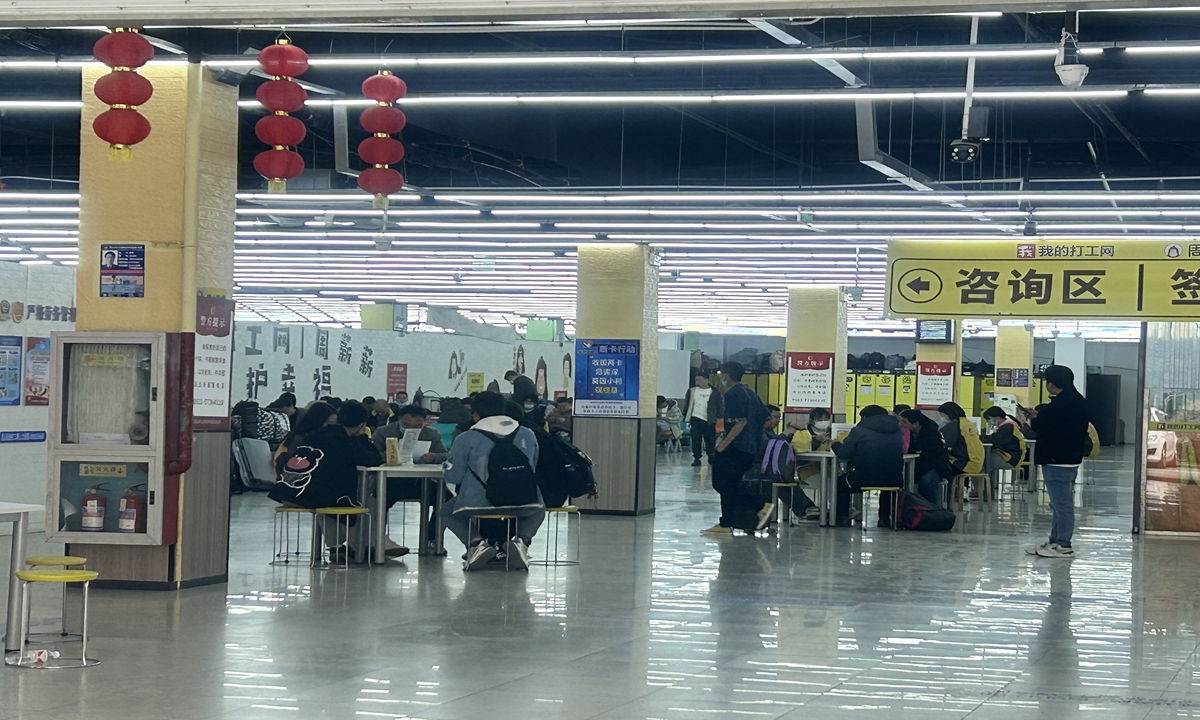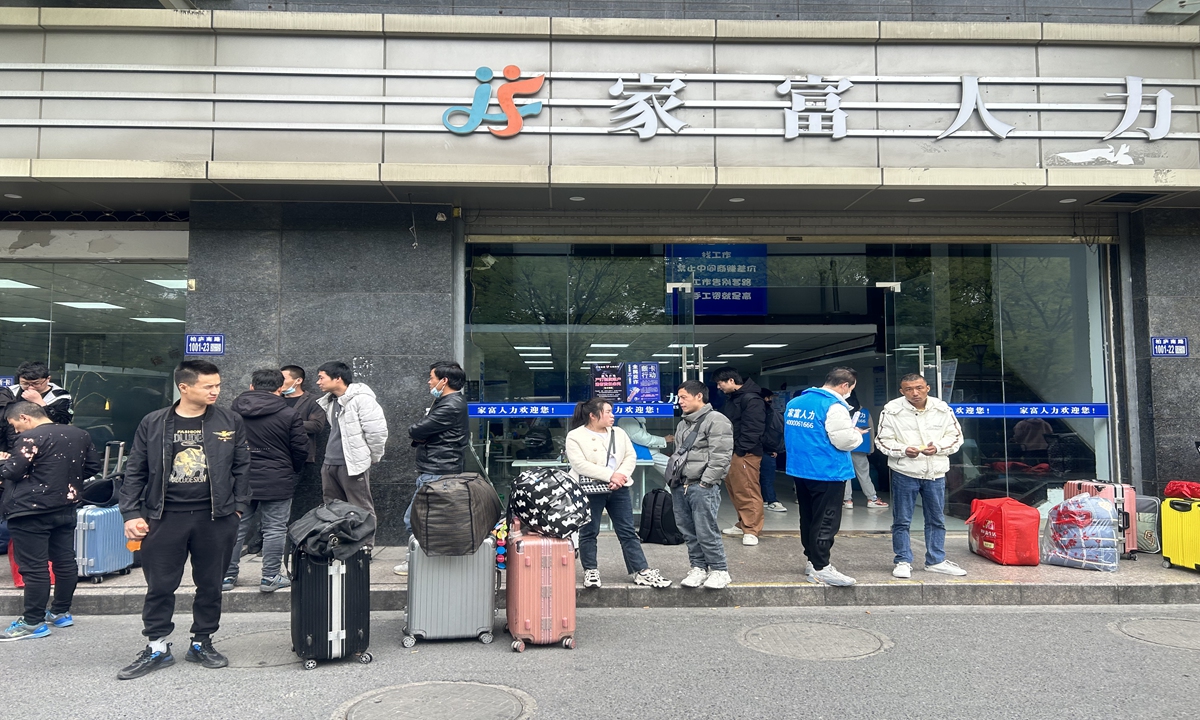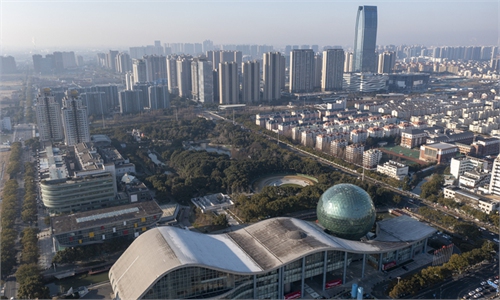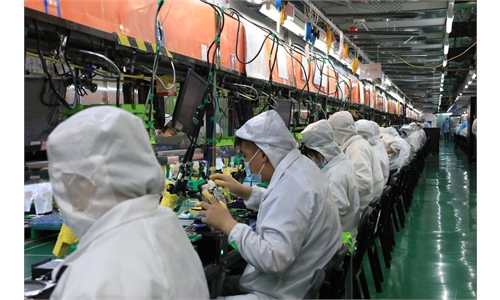E.China export hub reports pick-up in sentiment, no fear of so-called production outflows to overseas destinations such as SE Asia
Collapse narrative belies reality of economic cycles

Workers seek jobs at labor markets in Kunshan, East China's Jiangsu Province on March 30, 2023. Photo: Qi Xijia/GT
Business sentiment is picking up in Kunshan, a manufacturing hub in East China's Jiangsu Province, despite headwinds that have weighed on the city's exports.
The "China collapse" narrative of some Western media outlets, which hints that Chinese exports are in big trouble, is far from the reality, experts said. It seems to have confused economic cycles with China's export capability, and failed to factor in contracting demand amid global recession concerns.
In Kunshan, home to a vast manufacturing base, the job market is picking up and industry insiders said that they're not worried about outflows of production capacity to overseas destinations such as Southeast Asia.
The growth of China's exports slowed in January and February, and the Financial Times reported that employers in Kunshan are slashing jobs as some of their orders are transferred to plants in Southeast Asia amid US trade protectionism.
A Global Times reporter interviewed job seekers and third-party recruiting agencies for electronics plants in Kunshan on Thursday. Many said that fluctuations in the job market and falling wages are temporary, mainly caused by the production cycle and weakening demand for electronic products globally.
Some of the agencies said that the number of job hunters increased after Spring Festival while companies' export orders fluctuated. As a result, some companies' labor demand stagnated and wages fell compared with the same time last year.
However, they said that the relatively low wage level was normal as hiring and salaries are determined by the production cycle, which usually peaks in July and August.
Some interviewees said that the labor market is already warming up. Others said that they weren't too worried about the so-called production shift.
A Kunshan-based third-party recruiter surnamed Ge told the Global Times on Thursday that labor demand from factories is much better than at the beginning of the year, and things will improve further in the coming months.
"We learned that some factories are building new lines. Now, we get quotas to hire about 100 frontline workers for factories, up from a dozen at the beginning of the year," Ge said.
Ge hires for a number of Apple suppliers based in Kunshan, such as Foxconn and iPhone assembler Pegatron.
"Demand varies from month to month. We expect more demand and higher salaries in the summer," Ge said.
Other recruiters said on Thursday that some of the additional fees that were required of job seekers at the beginning of the year have been abolished, as more job seekers enter the market.

Workers seek jobs at labor markets in Kunshan, East China's Jiangsu Province on March 30, 2023. Photo: Qi Xijia/GT
Some workers and recruiters said that they are not worried by the picture described by some Western media of companies moving production abroad.
"Compared with Southeast Asia or India, China has better public security, as well as an efficient recruiting process and employee training process not enjoyed by other global manufacturing bases in the world," Ge said.
She said that Kunshan has a well-established process for hiring that usually takes just two or three days.
An employee at iPhone assembler Pegatron, surnamed Wang, who has worked for various electronics plants in Kunshan, told the Global Times that he is confident about job opportunities in the city.
"If the manufacturing companies move to India and Southeast Asia and close themselves off from a closely interwoven industrial and supply chain network formed in past decades, they certainly will not survive," he said.
He said that these electronics factories have been deeply rooted across China for many years, which guarantees sufficient production capacity "A shift of operations will bring a lot of uncertainties and risks for the companies," he said.
Bai Ming, deputy director of the international market research institute at the Chinese Academy of International Trade and Economic Cooperation, told the Global Times on Thursday that it would be mixing facts with prejudices if the tone of Western media's reports implied that Chinese exports - a hallmark of the world's largest trading nation - are doomed.



